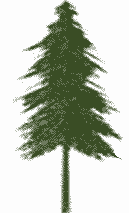Translate this page:
Summary
Physical Characteristics

 Angophora cordifolia is an evergreen Tree growing to 30 m (98ft 5in).
Angophora cordifolia is an evergreen Tree growing to 30 m (98ft 5in).
See above for USDA hardiness. It is hardy to UK zone 9. It is in leaf all year. The species is hermaphrodite (has both male and female organs) and is pollinated by Bees.
Suitable for: light (sandy) and medium (loamy) soils and prefers well-drained soil. Suitable pH: mildly acid, neutral and basic (mildly alkaline) soils. It cannot grow in the shade. It prefers moist soil.
UK Hardiness Map
US Hardiness Map
Synonyms
A. costata. Domin. A. lanceolata.
Plant Habitats
Woodland Garden Secondary; Dappled Shade; South Wall. By. West Wall. By.
Edible Uses
Edible Parts:
Edible Uses: Gum
None known
References More on Edible Uses
Medicinal Uses
Plants For A Future can not take any responsibility for any adverse effects from the use of plants. Always seek advice from a professional before using a plant medicinally.
Astringent
Astringent[156].
References More on Medicinal Uses
The Bookshop: Edible Plant Books
Our Latest books on Perennial Plants For Food Forests and Permaculture Gardens in paperback or digital formats.

Edible Tropical Plants
Food Forest Plants for Hotter Conditions: 250+ Plants For Tropical Food Forests & Permaculture Gardens.
More

Edible Temperate Plants
Plants for Your Food Forest: 500 Plants for Temperate Food Forests & Permaculture Gardens.
More

More Books
PFAF have eight books available in paperback and digital formats. Browse the shop for more information.
Shop Now
Other Uses
Gum Preservative Wood
A gum is obtained from the trunk, it is used medicinally and also to preserve ropes in water[156]. Wood - not durable. Used for fence rails, rough slabs etc[156].
Special Uses
References More on Other Uses
Cultivation details
Prefers a sunny position in a moderately fertile well-drained moisture retentive circum-neutral soil[200]. Tolerates poor and dry soils, especially those low in mineral elements[200]. Established plants are drought tolerant[200], but they are not very wind resistant[77]. Plants succeed outdoors in Britain only in the very mildest areas of the country[200]. They are hardy to at least -7°c in Australian gardens[157], but this cannot be translated directly to British gardens because of our cooler summers and longer colder and wetter winters. There is some confusion over the correct name for this species. We have used the name A. cordifolia Cav. - one synonym of this species is given as A. costata. (Gaertn.)Britten. Some of the information we have included here was listed under A. costata. Domin., which we have assumed is the same species. Trees lose their branches in high winds[157]. They sheds their bark annually[167].
References Carbon Farming Information and Carbon Sequestration Information
Temperature Converter
Type a value in the Celsius field to convert the value to Fahrenheit:
Fahrenheit:
The PFAF Bookshop
Plants For A Future have a number of books available in paperback and digital form. Book titles include Edible Plants, Edible Perennials, Edible Trees,Edible Shrubs, Woodland Gardening, and Temperate Food Forest Plants. Our new book is Food Forest Plants For Hotter Conditions (Tropical and Sub-Tropical).
Shop Now
Plant Propagation
Seed - sow April in a warm greenhouse. When large enough to handle, prick the seedlings out into individual pots and grow them on in a sunny position in the greenhouse for at least their first winter. If trying them outdoors, plant them out in early summer and give them some protection from the cold for at least their first winter outdoors. Cuttings of mature wood of the current seasons growth in sandy soil in a frame.
Other Names
If available other names are mentioned here
Native Range
AUSTRALASIA: Australia (New South Wales (east))
Weed Potential
Right plant wrong place. We are currently updating this section.
Please note that a plant may be invasive in one area but may not in your area so it's worth checking.
Conservation Status
IUCN Red List of Threatened Plants Status :

Growth: S = slow M = medium F = fast. Soil: L = light (sandy) M = medium H = heavy (clay). pH: A = acid N = neutral B = basic (alkaline). Shade: F = full shade S = semi-shade N = no shade. Moisture: D = dry M = Moist We = wet Wa = water.
Now available:
Food Forest Plants for Mediterranean Conditions
350+ Perennial Plants For Mediterranean and Drier Food Forests and Permaculture Gardens.
[Paperback and eBook]
This is the third in Plants For A Future's series of plant guides for food forests tailored to
specific climate zones. Following volumes on temperate and tropical ecosystems, this book focuses
on species suited to Mediterranean conditions—regions with hot, dry summers and cool, wet winters,
often facing the added challenge of climate change.
Read More
Expert comment
Author
Cav.
Botanical References
200
Links / References
For a list of references used on this page please go here
Readers comment
| Add a comment |
|
If you have important information about this plant that may help other users please add a comment or link below. Only comments or links that are felt to be directly relevant to a plant will be included. If you think a comment/link or information contained on this page is inaccurate or misleading we would welcome your feedback at [email protected]. If you have questions about a plant please use the Forum on this website as we do not have the resources to answer questions ourselves.
* Please note: the comments by website users are not necessarily those held by PFAF and may give misleading or inaccurate information.
To leave a comment please Register or login here All comments need to be approved so will not appear immediately.
|
Subject : Angophora cordifolia
|
|
|
|